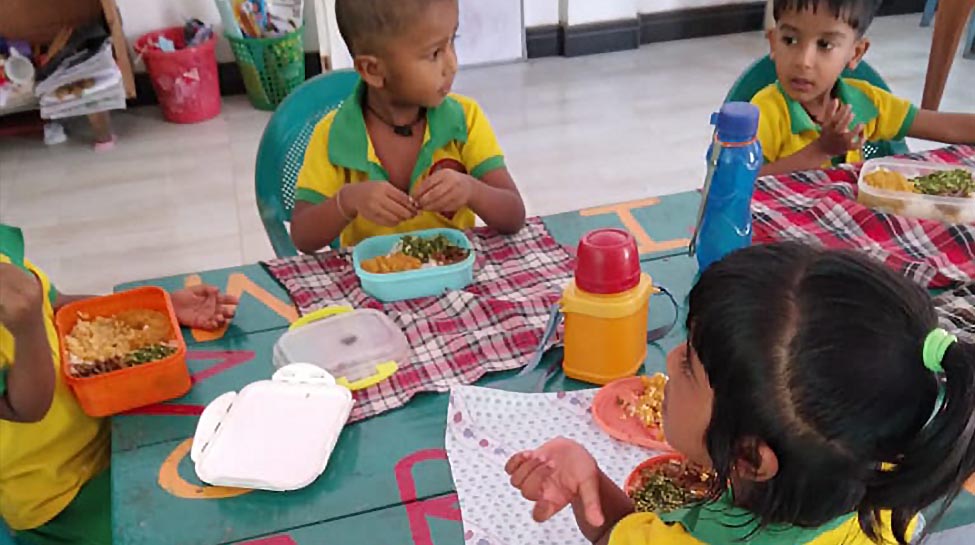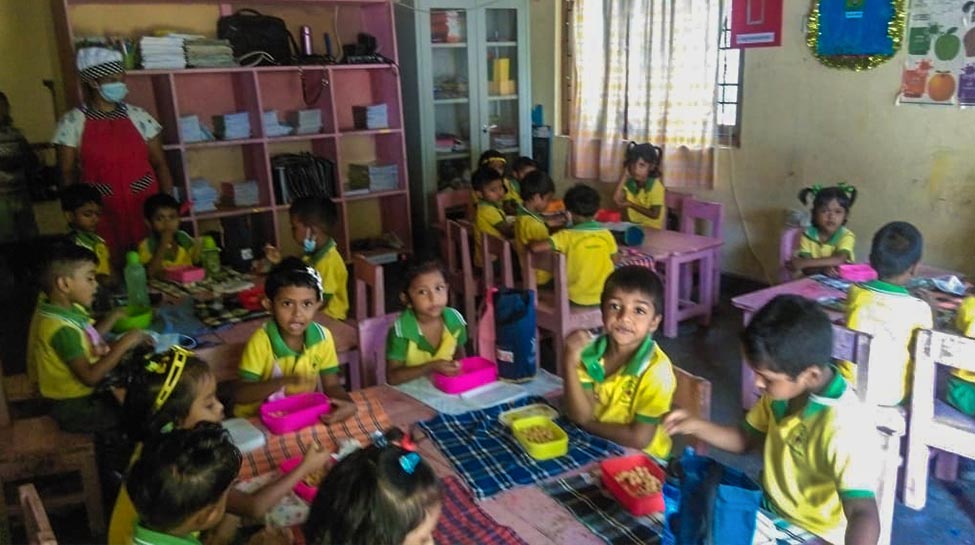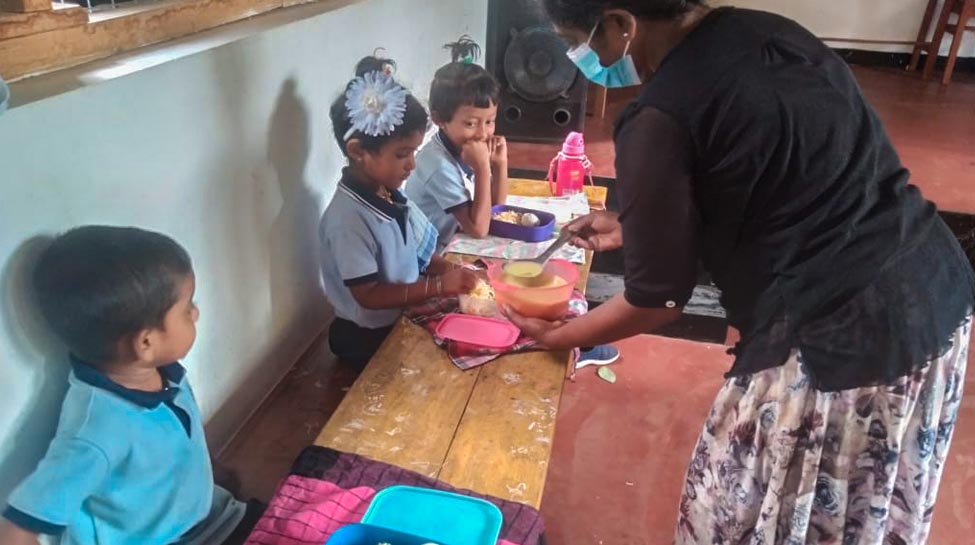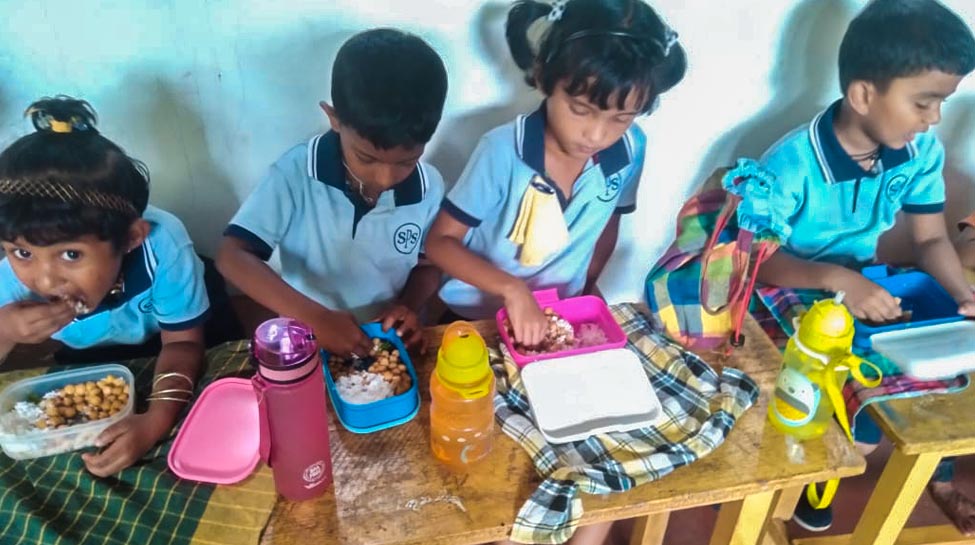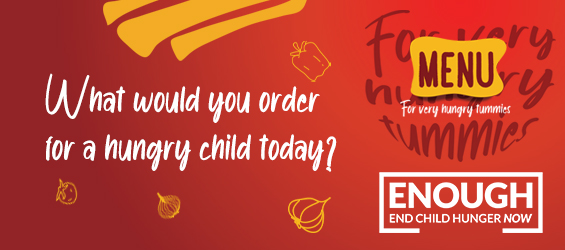Preschool years are the time when children should be growing physically, emotionally, and psychologically. When children don’t get three meals a day or the required nutrients in their meals it affects their growth in irreversible ways.
With the current economic crisis in Sri Lanka, more and more families are cutting down on their meals. Parents find it hard to pack food into their preschooler’s lunchbox. Past few months we have seen children bring less food to preschool.
When a child is hungry, they are often so weak they have no energy to participate in normal preschool activities. The result? No energy to engage in developmental learning and play, delays in growth and development, and malnutrition leading to forms of stunting and wasting.
World Vision is now fundraising to provide a nutritious meal for 528 preschool children in Rideegama for 6 months!
What's inlcuded in the meal plan?
Monday : Rice with dhal, spinach and sprats curry
Tuesday : Chickpea, cowpea or mungbeans with coconut scrapes
Wednesday : Milkrice prepared with mungbeans, sambol and piece of fish
Thursday : Noodles with eggs and vegetables
Friday : Mixed vegetable rice prepared with at least two vegetables, egg and dhal or soya curry
They will also get a different food for dessert everyday!
Why aren’t their families able to provide food for these school-age children?
Sri Lanka is facing its worst economic crisis since independence in 1948. Soaring inflation is devastating thousands of economically vulnerable families who already struggle with extreme poverty and is forcing them to reduce the number of meals they can provide for their children each day. According to the World Food Programme Hunger Map, the headline inflation is estimated to be at 39.1% while food inflation 57.4% as at May 31, 2022 in Sri Lanka.
Aren’t there government programs to provide additional meals?
In the past, modest government funding helped cover some of the expense for additional daily meals. As a result of the economic crisis and government funding cuts The National Nutrition Programme for preschool and school children has been suspended in more than 50% of the schools. In Ridigama too majority of the preschools has been eliminated from this programme.
How will World Vision help feed these children?
World Vision’s long-term strategy to ensure that vulnerable school-age children receive adequate daily nutrition incorporates a two-pronged approach:
- First : World Vision will provide children with daily meals during a transition time of six months. The cost of each meal is 110 rupees (30 US cents).
- Second : During these six months, families and even preschools will be taught to grow sustainable gardens that will yield nutritious food year-round. Gardens will take three months to begin producing, and during that time, parents and caregivers of preschoolers will also be trained to prepare multi-nutrient meals with locally available food.



